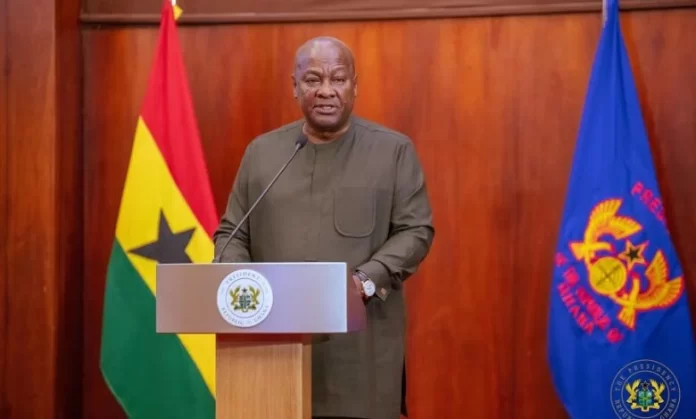
President John Mahama has announced he will not seek re-election in 2028, framing the decision as a commitment to Ghana’s constitutional two-term limit and a strategic move to uphold fiscal responsibility.
Speaking during a three-day state visit to Singapore, where he held bilateral talks with President Tharman Shanmugaratnam, Mahama said his electoral absence allows him to implement tougher economic policies without the pressures of campaigning.
“I will not be a candidate in the next elections and therefore I can hold the line when it comes to fiscal discipline,” he stated.
The Ghanaian leader linked his decision to curbing pre-election spending sprees, which he described as a recurrent pattern undermining economic stability.
By removing the incentive for short-term populist measures, Mahama intends to maintain the gains his administration has achieved since returning to power in December 2024.
These include declining inflation, lower interest rates, and a strengthening cedi.
Ghana’s constitution restricts presidents to two terms, consecutive or otherwise.
Mahama previously served from 2012 to 2017 before losing to Nana Akufo-Addo, and later returned following the NDC’s decisive victory in 2024. His statement directly addresses speculation from the opposition New Patriotic Party regarding potential third-term ambitions.
The announcement now opens the path for the NDC to select a new presidential candidate, with Vice President Jane Naana Opoku-Agyemang emerging as a potential frontrunner.
For the NPP, Mahama’s decision removes a longstanding political opponent, reshaping calculations ahead of the 2028 elections.
During his Singapore visit, Mahama focused on strengthening bilateral economic relations and attracting foreign investment, particularly in technology, infrastructure, and financial services. He highlighted Singapore as a model for rapid development, noting its transformation into a global financial hub.
By publicly declaring his decision well ahead of the 2028 elections, Mahama aims to provide political stability and allow his administration to focus on long-term fiscal policies, including managing national debt and sustaining economic growth. The announcement shifts attention to succession planning within the NDC and the strategies both parties will adopt to secure their positions in Ghana’s evolving political landscape.



